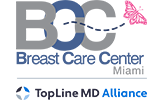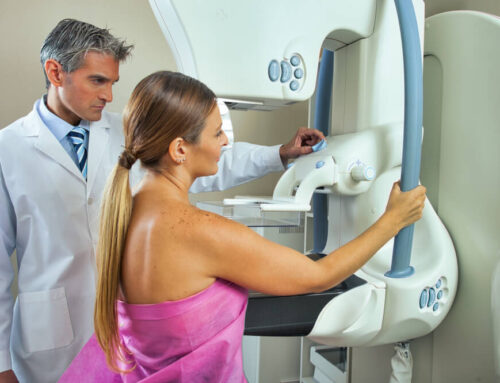Breastfeeding is often celebrated for its numerous benefits for babies, but its advantages extend beyond just the well-being of the child. For mothers, the act of breastfeeding offers significant health benefits, particularly concerning breast health. In this comprehensive guide, our experts at Breast Care Center Miami explore the various benefits of breastfeeding and how it contributes to a mother’s health, emphasizing its role in potentially helping to prevent breast cancer and lower the risk of breast cancer.
Understanding the Benefits of Breastfeeding
Breastfeeding is a natural process that provides essential nutrients and antibodies to infants. However, it’s not just the baby who benefits. Mothers who breastfeed experience several health advantages, particularly regarding their breast health.
Breastfeeding and Reduced Risk of Breast Cancer
One of the most significant benefits of breastfeeding for mom is a lower risk of breast cancer. Numerous studies have shown that women who breastfeed have a reduced risk of both pre- and postmenopausal breast cancer. Some theories suggest that breastfeeding can prevent breast cancer because it delays the return of regular menstrual cycles, thus reducing a woman’s exposure to hormones like estrogen, which may have a role in promoting breast cancer cell growth.
Additionally, changes in breast tissue that occur during lactation may make the breast cells more resistant to mutations that can cause cancer. Breastfeeding for longer periods further extends these benefits, offering more prolonged protection.
Breastfeeding and Hormonal Balance
Breastfeeding helps in maintaining a hormonal balance in the body, which is crucial for breast health. During lactation, the levels of certain hormones, such as estrogen, are lowered. This hormonal regulation can reduce the risk of hormone-related breast cancers.
Breastfeeding and Hormone-Related Breast Conditions
In addition to its role in preventing breast cancer, breastfeeding can also have a positive impact on other hormone-related breast conditions. For instance, conditions such as fibrocystic breast changes and mastitis, which are influenced by hormonal fluctuations, tend to occur less frequently in women who have breastfed. The hormonal regulation that occurs during lactation may help in reducing the incidence and severity of these conditions, further emphasizing the comprehensive benefits of breastfeeding for overall breast health. This aspect highlights the importance of considering breastfeeding as a key factor in women’s health beyond its immediate lactational purpose.

Breastfeeding Leads to Healthy Tissue Changes
Another factor in the benefits of breastfeeding is the changes in the structure of breast tissues. When a woman breastfeeds, her breast tissue undergoes various changes, which may help in shedding cells with potential DNA damage, thus reducing the risk of developing breast cancer.
Weight Loss and Metabolic Benefits
Breastfeeding aids in weight loss post-pregnancy, which is an essential factor in breast health. Excess weight and obesity are linked to an increased risk of various cancers, including breast cancer. By helping mothers return to their pre-pregnancy weight more quickly, breastfeeding can contribute to a healthier lifestyle that may help prevent breast cancer.
Breastfeeding and Ovarian Cancer
While discussing breast health, it’s noteworthy that breastfeeding also reduces the risk of ovarian cancer. This benefit adds to the comprehensive health advantages that lactation offers to women.
Psychological Benefits
The psychological benefits of breastfeeding aren’t to be overlooked. Breastfeeding fosters a strong emotional bond between the mother and the child. This bonding experience can reduce stress and improve the overall mental health of the mother, which indirectly contributes to better breast health.
Long-Term Health Impact
The benefits of breastfeeding for mom go beyond immediate health impacts. It contributes to long-term health, with studies indicating that women who breastfeed have a lower risk of breast cancer, heart disease, and even type 2 diabetes.
Lifestyle Considerations in Breastfeeding
While breastfeeding offers numerous health benefits, it’s essential to consider lifestyle factors that can influence these benefits. A healthy diet, avoiding tobacco and alcohol, and regular physical activity can enhance the positive effects of breastfeeding on breast health.
Breastfeeding and Menstrual Cycle Regulation
Breastfeeding also plays a crucial role in the regulation of the menstrual cycle. Known as lactational amenorrhea, this is the period during which menstruation is suppressed while breastfeeding. The delay in the return of regular menstrual cycles has a hormonal basis and is considered beneficial for breast health. This natural suppression of the menstrual cycle due to breastfeeding results in reduced exposure to estrogen, which, as mentioned, is associated with a lower risk of breast cancer.
Impact on Maternal Aging and Cellular Health
Recent research suggests that breastfeeding might have an anti-aging effect on mothers. Telomeres, which are the protective caps at the ends of chromosomes and indicators of cellular aging, appear to degrade more slowly in women who have breastfed. This slower rate of telomere shortening is linked to a reduced risk of certain diseases, including some forms of cancer, and potentially enhances overall breast health.
Nutritional Aspect of Breastfeeding for Mothers
While the focus is often on the nutrition provided to the baby, breastfeeding also has nutritional implications for the mother. It necessitates an increased intake of calories and nutrients, encouraging a balanced and nutritious diet that benefits the mother’s overall health, including breast health. This nutritional aspect can contribute indirectly to the benefits of breastfeeding as a well-nourished body is better equipped to repair and maintain healthy tissues, including breast tissue.

Breastfeeding and Autoimmune Diseases
Emerging evidence suggests a possible link between breastfeeding and a reduced risk of certain autoimmune diseases. Autoimmune diseases occur when the immune system mistakenly attacks the body’s own tissues, and some of these diseases are known to affect breast health. By modulating the immune system, breastfeeding might help in reducing the risk of these conditions, though more research is needed in this area.
Environmental and Socioeconomic Factors in Breastfeeding
The decision to breastfeed and its duration can be influenced by various environmental and socioeconomic factors. Maternal support systems, workplace policies, and cultural norms play significant roles. Access to breastfeeding education and resources can empower more women to breastfeed, thereby extending the benefits of breastfeeding to a broader segment of the population.
Breastfeeding as a Sustainable Choice
From an environmental perspective, breastfeeding is a sustainable choice. It requires no packaging, transportation, or waste, unlike formula feeding. This environmental sustainability adds to the holistic benefits of breastfeeding for both mother and child, contributing to a healthier planet and, indirectly, to better overall breast health.
Conclusion
The benefits of breastfeeding extend far beyond the health of the baby. For mothers, it offers significant health advantages, particularly in terms of breast health. From helping to prevent breast cancer to improving hormonal balance and emotional well-being, breastfeeding is a key contributor to a woman’s overall health. It’s a practice that not only nurtures the baby but also fortifies the mother’s health, echoing the importance of breastfeeding in the journey of motherhood.






